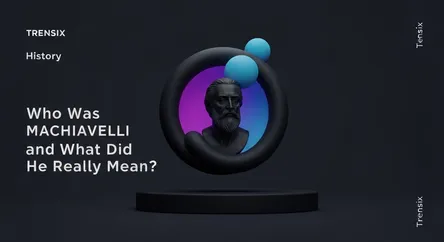History
Who Was Machiavelli and What Did He Really Mean?

An introduction to Niccolò Machiavelli, the Renaissance thinker whose controversial ideas on power and politics continue to influence leaders today.
What is it?
Niccolò di Bernardo dei Machiavelli (1469-1527) was an Italian diplomat, philosopher, and writer during the Renaissance in Florence. He is often called the father of modern political philosophy and political science. Machiavelli is most famous for his political treatise, "The Prince," written around 1513. This work offered a revolutionary and pragmatic view of statecraft, suggesting that rulers should be prepared to use cunning, deceit, and even cruelty to maintain power and ensure the stability of the state. He argued that public and private morality are separate and that a leader must be willing to act unscrupulously when necessary for the greater good of the state, a concept often summarized by the phrase "the ends justify the means."
Why is it trending?
Machiavelli's ideas remain perpetually relevant because they provide a starkly realistic lens through which to view politics and power. His work is a cornerstone of "Realpolitik," which prioritizes practical considerations of state interest over ideological or moral concerns. In an era of complex geopolitical dynamics and intense political rivalries, his theories offer timeless insights into leadership and strategy. The term "Machiavellian" is now commonly used to describe cunning, amoral, or manipulative behavior, ensuring his presence in discussions ranging from international relations to corporate leadership and modern political campaigns.
How does it affect people?
Machiavelli's philosophy fundamentally changed the way people think about politics and morality. By separating politics from traditional ethics and religion, he provided a framework for leaders to justify actions based on necessity and effectiveness rather than moral righteousness. This has had a profound impact on governance, influencing political leaders and thinkers for centuries. For the general public, his ideas force a critical examination of leadership, encouraging skepticism about the motivations of those in power. His writings continue to provoke debate on whether rulers should be loved or feared and to what extent immoral acts are permissible for the sake of national security and stability.